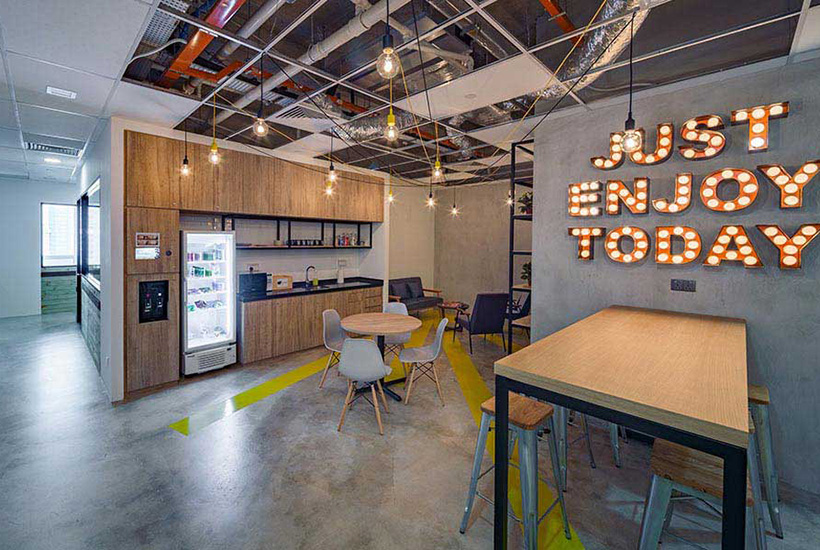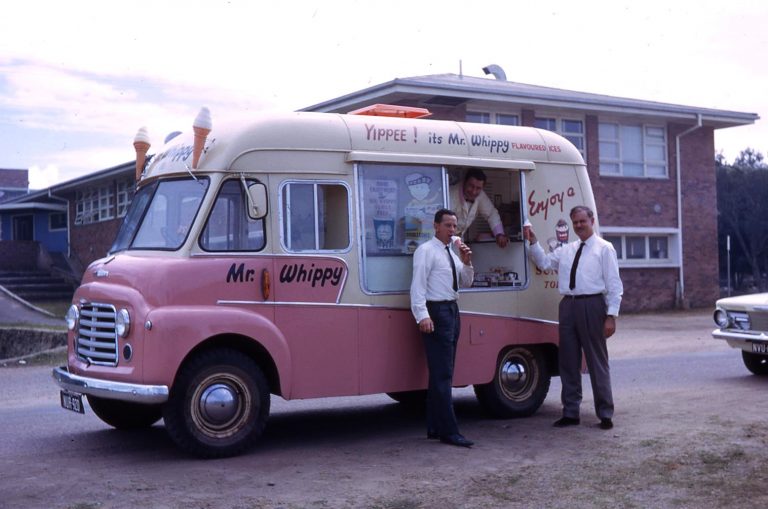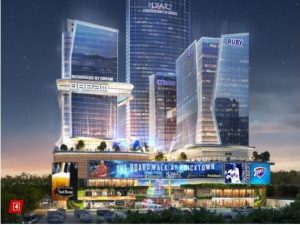Asian co-working giant set to take Sydney, Melbourne by storm

JustCo, one of Asia’s top three co-working space operators, plans to expand to Australia next year, initially targeting Sydney and Melbourne for its new operations.
JustCo’s founder and chief executive, Kong Wan Sing, told The Australian the company has secured sites in Sydney and Melbourne and plans to have four sites in each city by the end of next year.
“We are looking at Brisbane and Perth, but they are unlikely to come online before the second half of next year.”
Commercial Insights: Subscribe to receive the latest news and updates
JustCo is backed by Singapore’s sovereign wealth fund, GIC, and leading Singapore developer Frasers Property.
Kong says JustCo leases a minimum 50,000-100,000 square feet (4650sqm-9300sqm) for each location.
“We need to have a lot of space so that we can offer flexibility — and to have a big enough clientele to create a community,” he says.
I don’t see huge competition because penetration of flexible workspace in the commercial office market is just 2-8% in this region. I foresee that share growing to 20% in the next decade
“Our business operates on two key principles — flexibility and community.”
JustCo is planning a pilot 46,450sqm co-working space in a major Asian city, which he declined to name.
“This project represents the future of work,” Kong says, adding that once it is up and running, landlords and developers will embrace the concept and the format will be replicated in other key Asian cities.
“Big corporations make up 50-60% of our clientele in Singapore and other cities. So location is very important. We are talking about CBD and premium A-grade buildings.”

Kong Wan Sing, chief executive of JustCo.
While he is unable to reveal the locations in Sydney or Melbourne as yet, they are likely to be in Martin Place, Circular Quay or Barangaroo, in Sydney, and in Collins St and the Docklands in Melbourne.
Given the uncertainty of the global economy, Kong says companies want flexibility to adjust to space requirements without being tied down to long leases.
Business cycles are much shorter, he says, and companies that need space for new projects do not have the luxury of time.
“They can’t wait six or nine months to find and fit out additional office space,” Kong says. “Take my own company, as an example. We moved into our new offices this year with room for 70 people. We have already outgrown these offices. We need more space now.”
In May, JustCo formed a partnership with GIC and Frasers Property to establish a $US177 million ($245.5 million) Asia-Pacific co-working platform.
Big corporations make up 50-60% of our clientele in Singapore and other cities. So location is very important. We are talking about CBD and premium A-grade buildings
“GIC and Frasers are good shareholders,” Kong says. “They are committed to grow this platform with us and to roll out to new locations, including Australia and South Korea.
“Their investment will allow us to grow to 2 million square feet. We currently have around 75,000 square feet (mostly in Singapore). But we are not in a hurry to get to our target.
“GIC and Frasers are prudent investors. Every location goes through a stringent process before it is accepted. Every single investment is closely scrutinised for its commercial viability.”
JustCo stands apart from its competitors, many of whom are losing money to establish and grow their businesses.
“We are absolutely not losing money,” Kong says. “We are making money, as a matter of fact.”
He says JustCo operates on a 90%-plus occupancy across all its locations.
Asked if growing competition is a concern, Kong says: “I will answer the question from two angles.
“Firstly, I don’t see huge competition because penetration of flexible workspace in the commercial office market is just 2-8% in this region. I foresee that share growing to 20% in the next decade.
“Secondly, many players are small operators with limited locations. You need technology and scale to make the business a success.
“Technology drives the business. We see ourselves as an offline LinkedIn platform where professionals can connect with each other. And, without space, you can’t have the number of clients to create a community.”
Kong says the co-working environment appeals to the social media generation, and that, in a couple more years, millennials will make up 80-90% of the workforce.
This article originally appeared on www.theaustralian.com.au/property.







